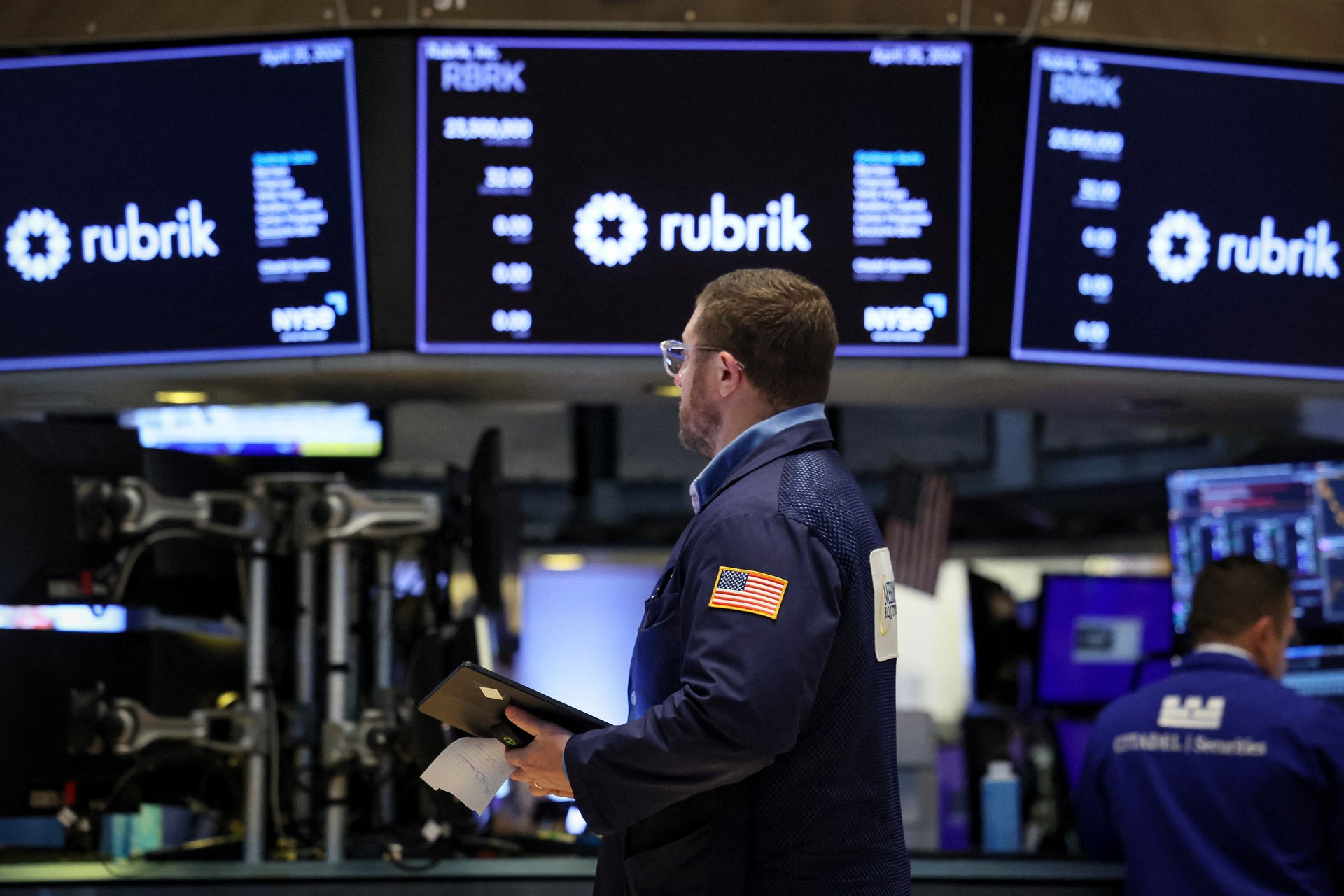🌍 Expensive expiration dates
Plus: Big Tech’s big earnings.

Good morning, Quartz readers!
Suggested Reading
Here’s what you need to know
Tech heavyweights impressed investors with their earnings yesterday. Microsoft, Google parent Alphabet, Intel, and Snap all beat Wall Street’s expectations, but the latter two still saw losses.
Related Content
Microsoft-backed Rubrik soared 20% in its IPO. The data security company has seen revenue climb and subscriber growth surge 47% year-over-year, but it’s still losing money.
Bird flu appears to be spreading further across farms in the U.S. Tests done by the Food and Drug Administration found strains of H5N1 in store-bought milk.
Honda and Toyota are investing billions to build more electric cars in North America. The Japanese automakers aim to capitalize on interest in cleaner cars as 1 in 5 cars sold worldwide this year will be electric.
Coca-Cola signed a $1 billion AI deal with Microsoft. The five-year agreement comes as Coke’s competitors Red Bull and Pepsi already use AI to track customer engagement.
Pharmaceutical giants rely on drug patents — until they can’t
Drug companies had an impressive earnings week, beating Wall Street’s expectations left and right.
Many pharmaceutical giants rely on patented medications to fuel their revenue — but those patents don’t last forever. When patents expire, it allows other companies to produce biosimilars that inevitably bite into their sales (and of course, help lower drug costs for patients).
Some helpful numbers illustrate how lucrative these patents are:
3: Drug patents Bristol-Myers Squibb is set to lose this decade
62%: Share of Bristol-Myers Squibb’s first quarter sales represented by the three drugs
44%: Share of Merck’s total first quarter sales that were attributable to its cancer drug Keytruda
$15.8 billion: Merck’s total first quarter sales
2028: Year Keytruda’s patent expires
Quartz’s Bruce Gil explains why that’s got drug giants bracing for impact.
Southwest maybe doesn’t want you to sit anywhere after all
U.S. airline Southwest has come to be known for its open seat policy, meaning passengers don’t have assigned chairs before getting on their flights. (Instead, customers are assigned boarding groups; once onboard, they pick any open seat they see.)
But after reporting a loss in the first quarter of this year, not only is Southwest limiting hiring and pulling out of airports, it’s rethinking seating altogether. Could that improve its bottom line? Quartz’s Francisco Velasquez has the latest.
Surprising discoveries
Earthquakes were the natural disaster that led to the most deaths last year. One important oversight in the data: accurate tolls involving heat waves.
Libraries pay a lot for audiobooks, and some are scaling back on the number of holds people can make. Just one digital audiobook of Britney Spears’ The Woman in Me cost $59.99, while a print copy was $17.81.
NASA is testing sunlight-powered space travel. It involves a sail powered by the Sun’s photons.
You can now buy a walking robot dog that shoots flames from its back. It’s called the Thermanator, and the jury’s still out on whether it’s a good boy.
That’s not the case for Messi, the TSA bomb-sniffing dog who was 100% a good boy. He just had his retirement party.
Did you know we have two premium weekend emails, too? One gives you analysis on the week’s news, and one provides the best reads from Quartz and elsewhere to get your week started right. Become a member or give membership as a gift!
Our best wishes for a productive day. Send any news, comments, fluffy flamethrowers, and retirement wishes for Messi to [email protected]. Today’s Daily Brief was brought to you by Morgan Haefner.